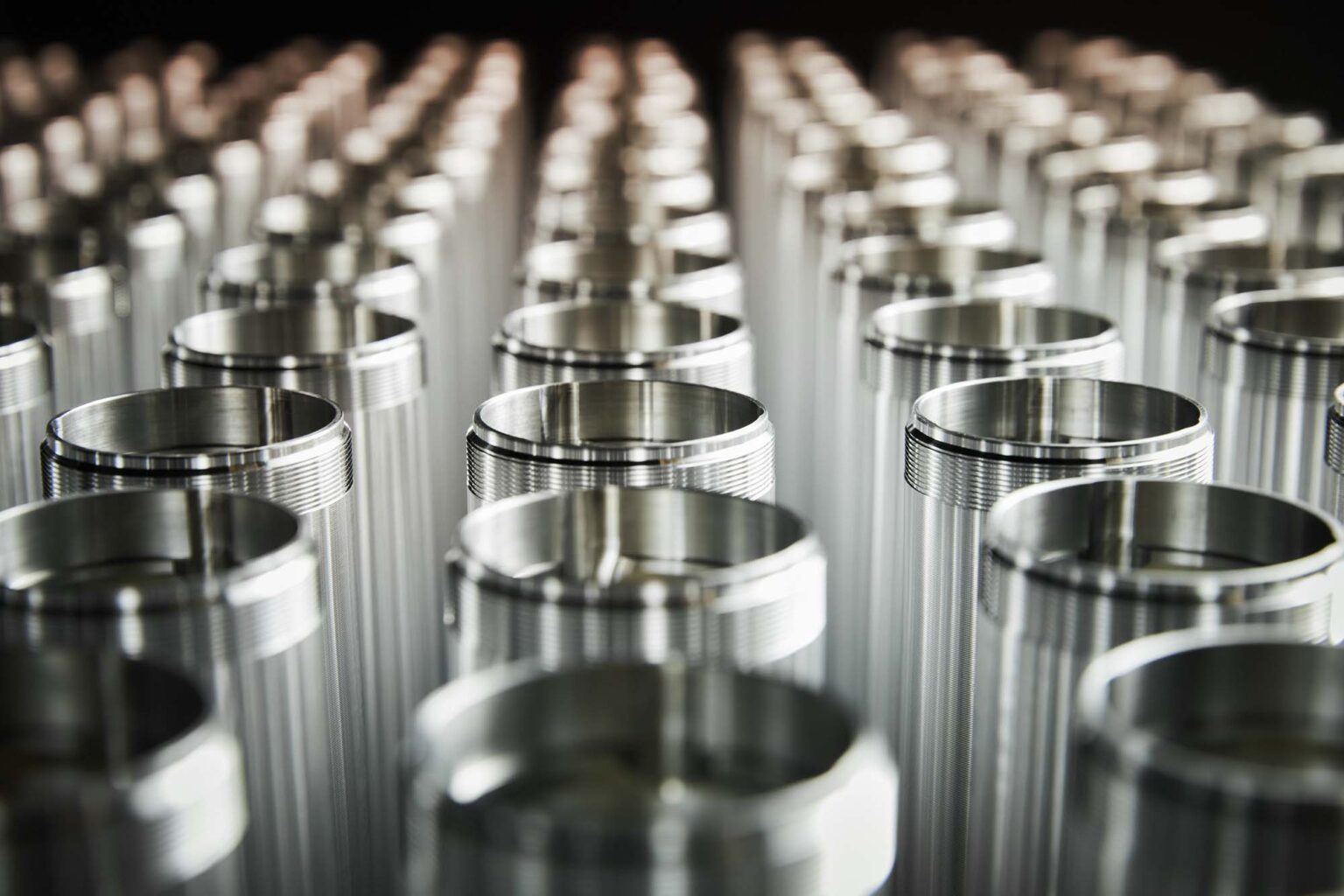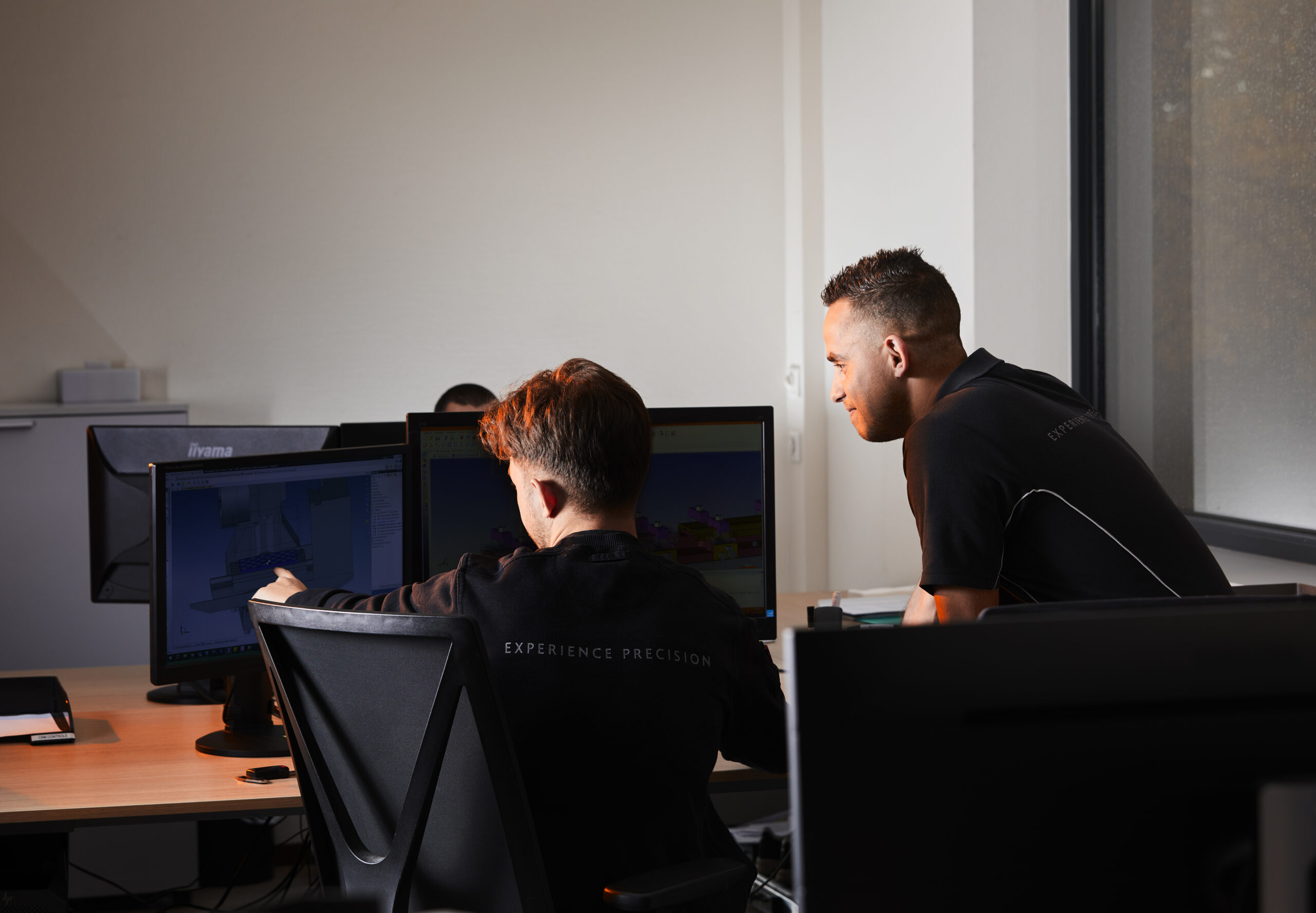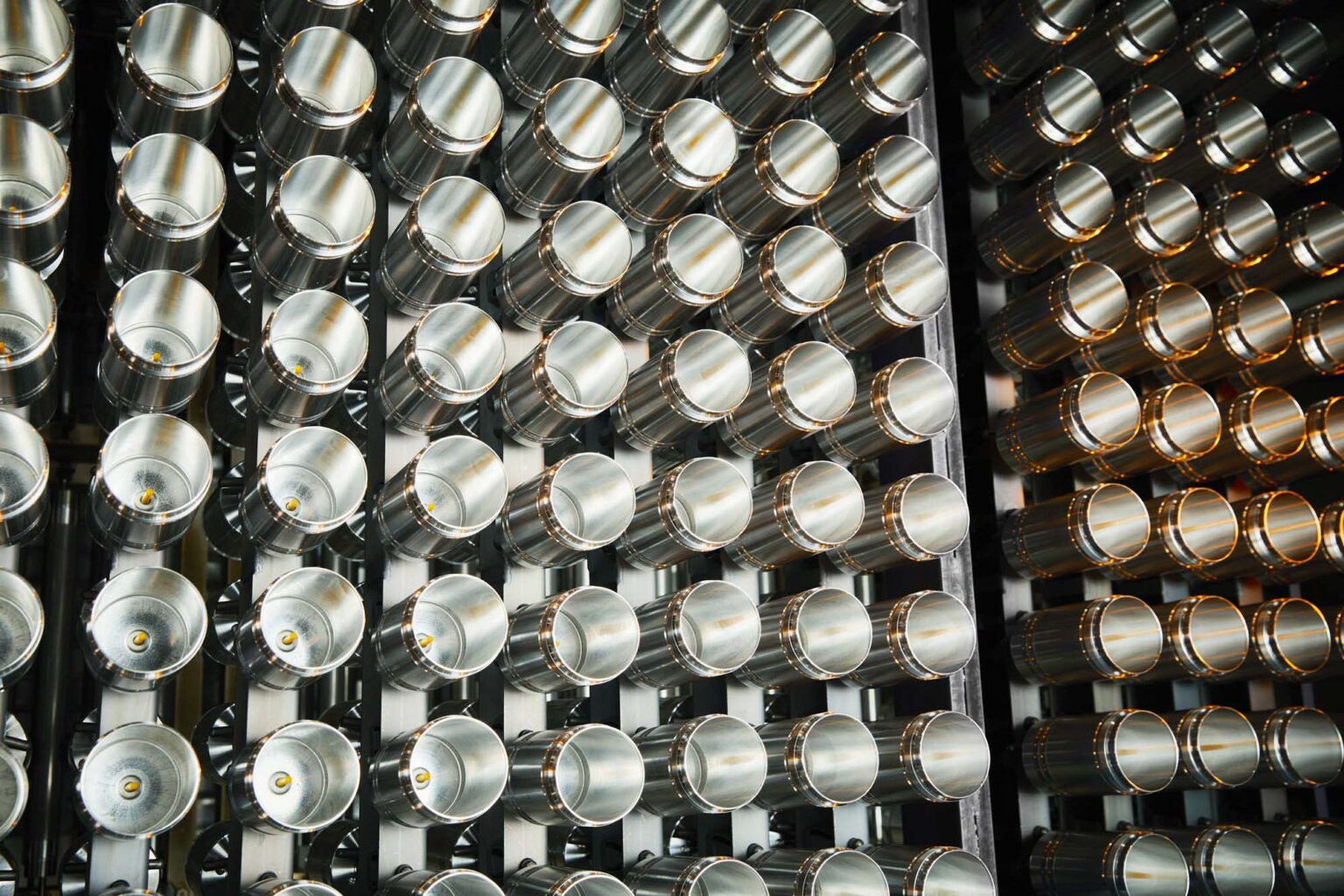
The aluminium extrusion alloy that best suits your product
The right aluminium or magnesium alloy for your precision profile; the optimal end product starts with the correct material selection.
Mifa is a specialist in producing precision extrusion profiles of aluminium and magnesium. We have the expertise and experience to select the right alloy for each product. Thus, we supply profiles to various sectors, including aerospace, industry, the medical sector, and mobility. In every market, properties such as material strength and wear resistance are crucial in choosing the right aluminium extrusion alloy. Our experienced engineers are here to assist you.
Co-engineering: we assist you in choosing the right aluminium extrusion alloy
It is essential to consider the properties of different alloy types. This includes factors such as heat resistance, corrosion resistance, mechanical strength, deformability, and weldability. Alloys, composed of various metals and other elements, exhibit different characteristics crucial for their ultimate applications. Therefore, it is crucial that the alloy provides the right properties. Each alloy shows a different level of resistance to external temperatures, humidity, or chemical conditions.
Mifa’s engineers have the expertise and knowledge to advise you on the various types of aluminium and magnesium alloys, enabling us to achieve an optimal product together. Additionally, we combine our expertise in extrusion and metal alloys. We have been successfully applying co-engineering for many years in collaboration with our clients.

Important factors in choosing an alloy
The key factors in choosing the right alloy are:
- Heat resistance
- Corrosion resistance
- Mechanical strength
- Ductility
- Deformability
- Weldability
Thanks to our expertise and experience, we are able to choose the right alloy for each product. Mifa performs standard extrusion with the aluminium, magnesium and special alloys listed below. Other materials are available on request.
| EN AW 1070 |
The only variant that Mifa carries as standard from this series is the 1070. Because of its electrical conductivity, it is almost invariably chosen for many electronic applications.
|
| EN AW 6060 | EN AW 6063 | EN AW 6005A | EN AW 6061 | EN AW 6082 |
One of the most popular aluminium composites where strength is not a key issue. The 6060 is easily formable, has a very good surface, is suitable for most surface treatments, and can even be welded. The 6060 alloy can in fact be used for anything, but is commonly used when the product is used in view. Examples include interior components in aircraft, industrial applications, etc.
| Almost identical to the 6060 alloy described above, but with its higher magnesium content the 6063 has better mechanical properties.
| Compared to the aluminium alloys set out above, the 6005A offers excellent mechanical properties, but performs less well regarding the surface condition.
| The 6061 is an alloy commonly used in the United States. It has very good mechanical properties, but lacks the same surface properties and is more difficult to extrude than the other 6xxx variants. Slightly stronger than many other 6xxx variants (strength is between 6005 and 6082).
| Very good mechanical properties and stronger than other variants of the 6xxx series. Harder to extrude, which means it cannot be used for complex profiles.
|
| EN AW 7020 | EN AW 7075 |
Its strength makes it widely used in the aerospace industry. The 7020 stands out for its strength after welding, which returns to 80%. The aluminium restores itself, as it were. No other aluminium alloy has this quality. This makes it a particularly reliable choice for welded parts that need to retain their strength. Examples include structural parts and building constructions, but certainly also structural aerospace components. Mifa previously developed a part for a zeppelin with this alloy. After about three months of ‘recovery’, the part has recovered the desired 80% strength.
| Its strength makes it widely used in the aerospace industry. Excellent mechanical properties and good resistance to metal fatigue. This is one of the most widely used aluminium alloys for heavy load-bearing structures. The material strength means that it is not possible to make hollow profiles with this alloy.
|
| AZ31 | AZ61 |
AZ31 contains a small proportion of aluminium, which gives it better mechanical properties and makes it more resistant to corrosion.
| The AZ61 alloy has similar properties to the AZ31, but the addition of a higher aluminium content provides increased corrosion resistance and greater material strength. The material strength means that it is not possible to make hollow profiles with this alloy.
|
Special alloys
Mifa also offers a range of special alloys, including Alloy 6066, 6463, 6061 with 20% SiC, Material Matrix Composites and Aluminium-Scandium alloys. These alloys are of interest for a variety of applications in various industries.
Would you like to learn more about the different alloys, applications and uses? Download our free whitepaper.


Surface treatment per alloy
Mifa specializes in surface treatments, allowing us to facilitate the entire process in-house. We often see that custom aluminium profiles are regularly provided with a surface treatment to enhance or eliminate specific product properties, such as corrosion resistance. The right treatment is crucial for the intended application.
A common problem for fabricators and designers, is that due to the large range of surface treatments available, they do not know which treatment is most suitable for their aluminium alloy. At Mifa, we believe it is our job to proactively help engineers and designers make the right choice for their extruded aluminium alloys.
Engineers and designers often don’t know which treatment offers the best combination of desired properties (such as corrosion resistance, wear resistance, or shine) at the lowest cost in a specific situation. Our specialists are happy to assist you with this. At Mifa, we offer three types of surface treatments:
- Anodizing (including GLISSCOAT®, HART-COAT®, technical anodizing);
- Passivation;
- Polymer layers (including Tufram®, Lectrofluor, Nedox).
Sustainability: top of mind
Aluminum has a long lifespan and remains 95% recyclable after use. It requires minimal maintenance, but at Mifa, we go a step further. We continually consider energy consumption, waste management, vitality, safety, and the health of our employees. Specifically, Mifa has achieved the following:
- Mifa saves 78% emissions with in-house production compared to others.
- With complete in-house production, Mifa saves a significant amount of CO2, a common ecological culprit: transport.
- Mifa’s thin-walled profiles result in a material saving of 33%.
Sustainability is a key theme in developing new products. We understand that questions arise about the CO2 emissions associated with the production of aluminum profiles at Mifa. Together with our partners and engineers, we have developed a specialized tool for life cycle analysis (LCA). This tool calculates emissions and demonstrates the positive impact of co-engineering on reducing the CO2 footprint.

Get in touch with us
Call or mail Frank
Business Development Manager


